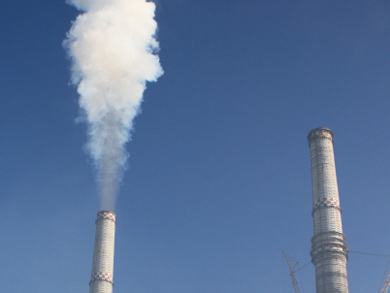Air pollution and greenhouse gas (GHG) emissions are two serious issues in China. The country has promoted the replacement of coal with shale gas for energy production to reduce both pollution and its carbon footprint. China has large resources of shale gas, however, the production process may lead to leakage of methane, a potent GHG. This could lessen shale gas’ positive impact on the climate compared to coal.
Denise L. Mauzerall, Princeton University, NJ, USA, and colleagues have analyzed the GHG emissions of shale gas compared to coal in the power, industrial, and residential sectors. The team estimated lifetime emissions including both the extraction and transport of gas or coal and their end-uses such as power generation or cooking. They also included methane emissions from unintentional gas leaks or intentional venting. Due to large uncertainties, the researchers give upper and lower bounds for their estimates, as well as a mean value.
The team found that the mean carbon footprint of shale gas is 30–50 % lower than that of coal. However, the upper bound of shale gas’ carbon footprint is 15–60 % higher than that of coal due to large uncertainties in the estimated methane leakage. The researchers calculated that methane leakage rates of 4.2 % in the industrial sector, 6.0 % in the power sector, and 7.7 % in the residential sector are the breakeven points for the carbon footprint in switching from coal to gas. They state that with proper controls for methane leakage, shale gas could improve air quality and reduce GHG emissions in China, especially in the residential sector.
- Can Switching from Coal to Shale Gas Bring Net Carbon Reductions to China?,
Yue Qin, Ryan Edwards, Fan Tong, Denise L. Mauzerall,
Environ. Sci. Technol. 2017.
DOI: 10.1021/acs.est.6b04072




